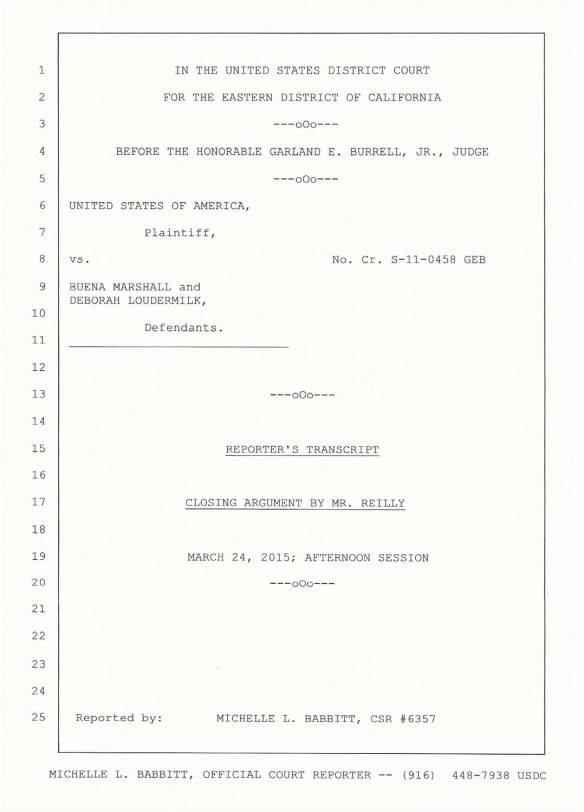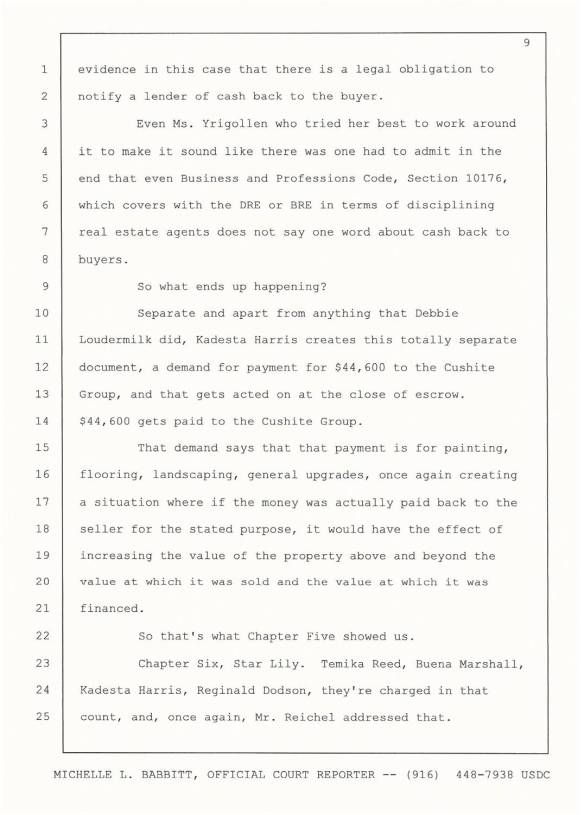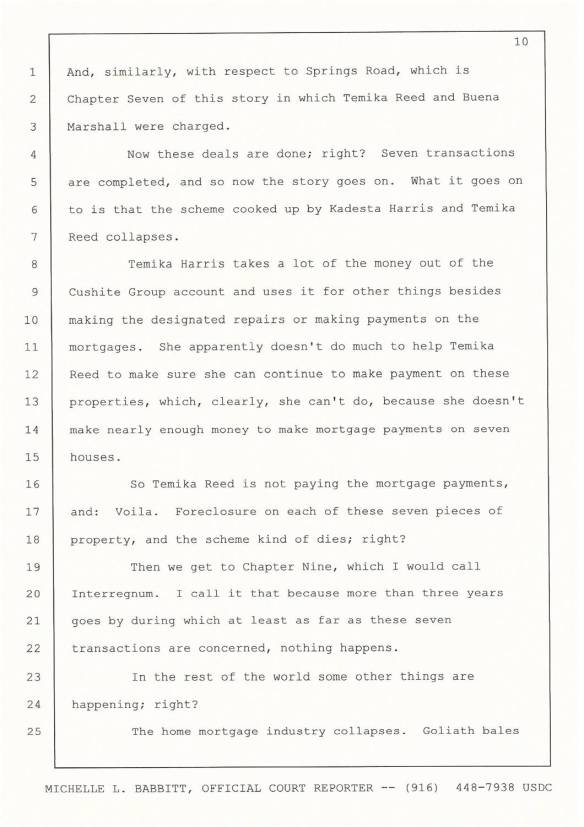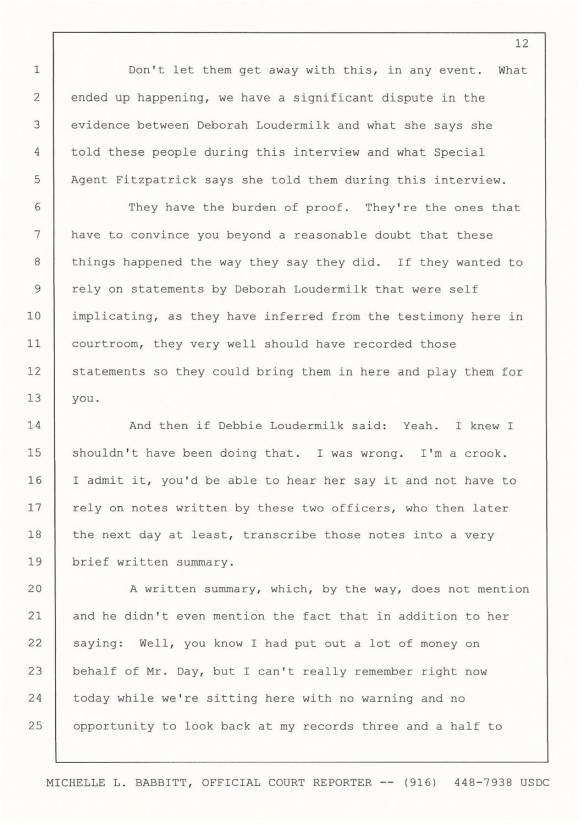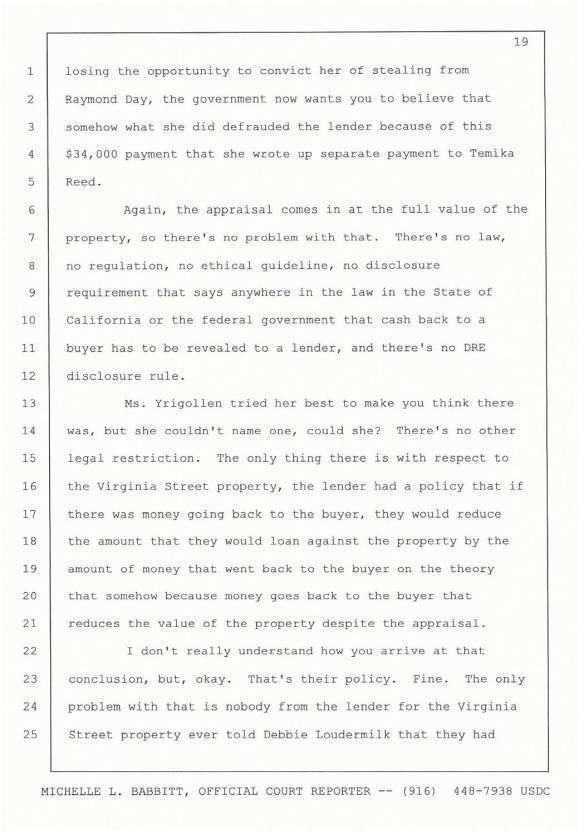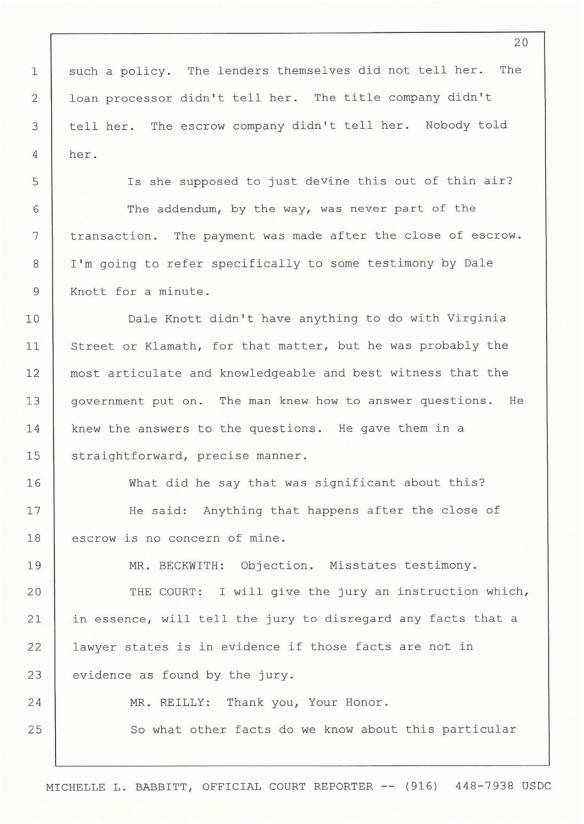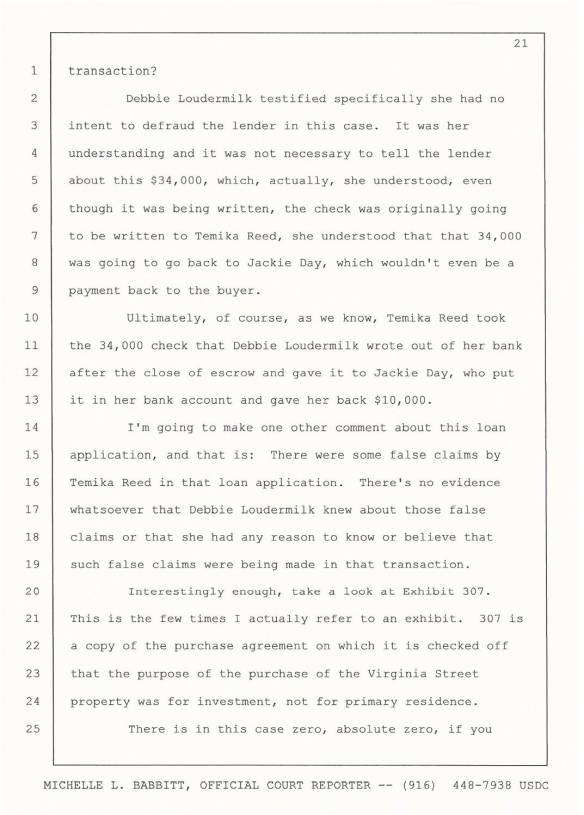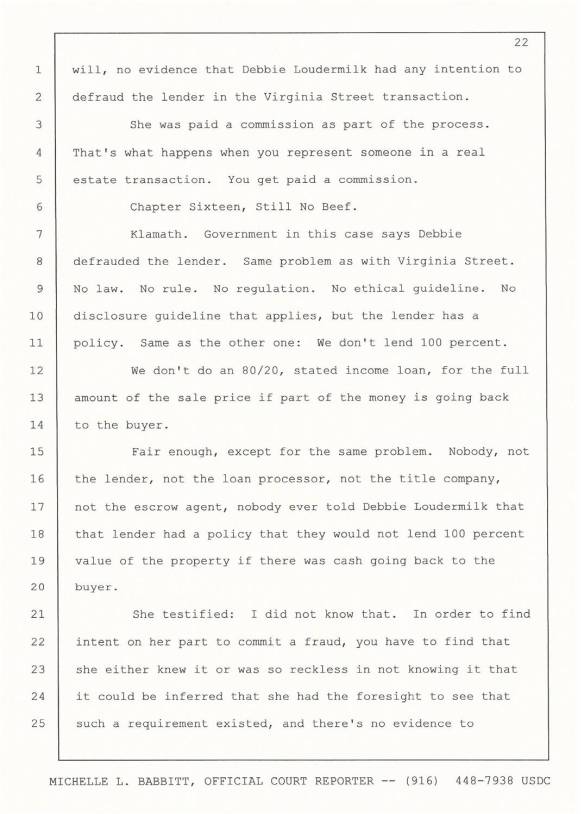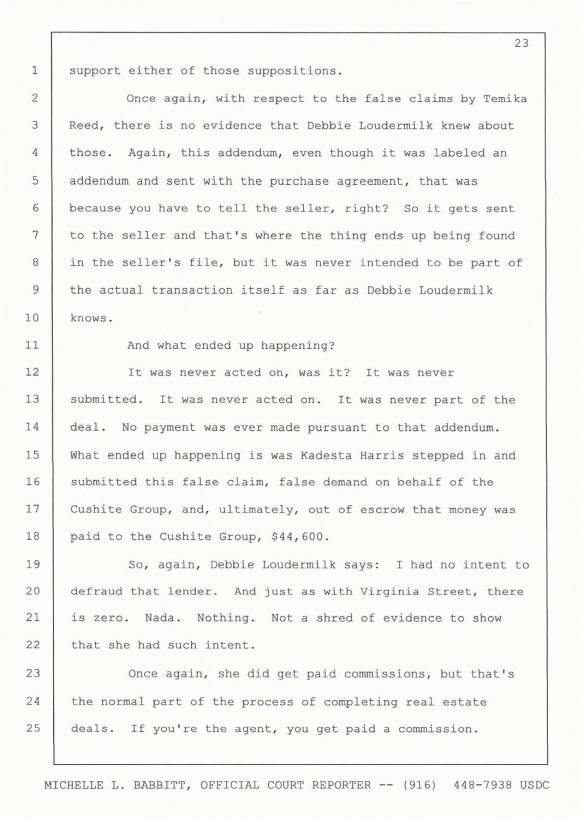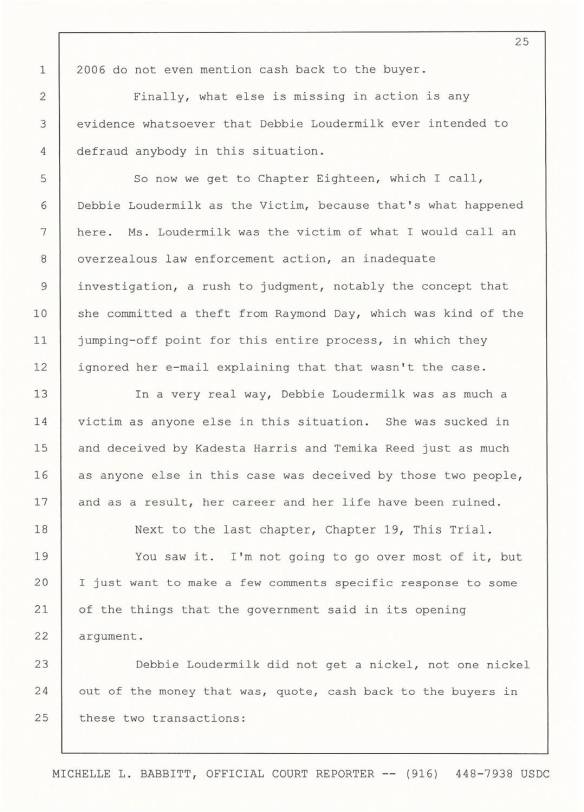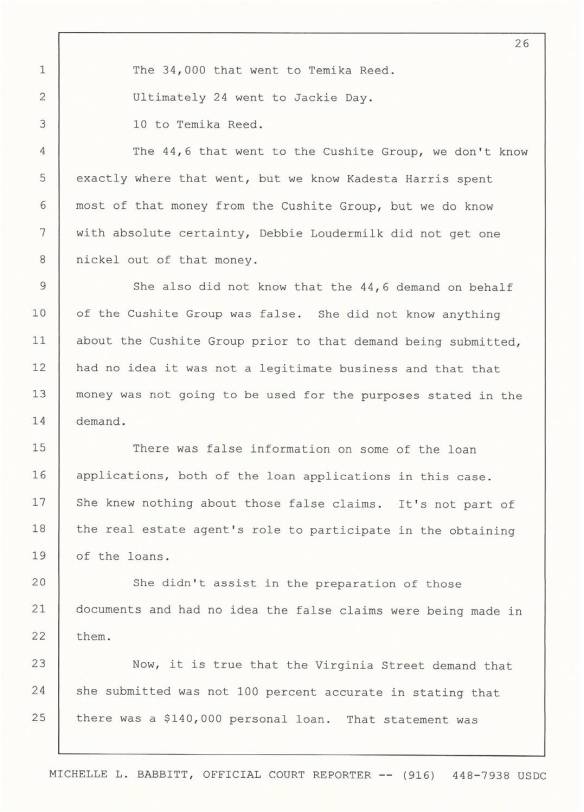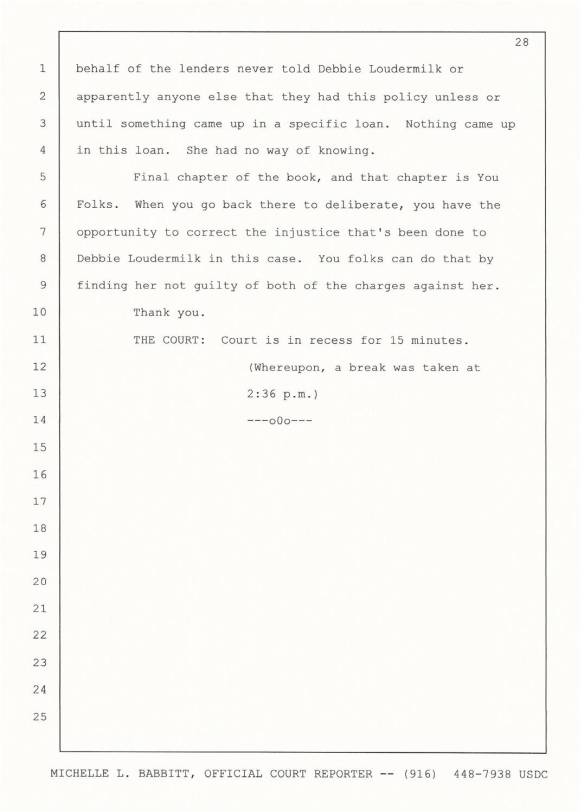Looking back this weekend at one of the most memorable cases of my career, which ended a year ago today.
It was a federal mail fraud case in the Eastern District of California, Sacramento, court. The US Attorney’s office in Sacramento had charged six defendants in the case, but by the time we started the trial on March 3, 2015, four of the six had pled guilty and agreed to testify against the other two.
The two remaining defendants were my client, Deborah Loudermilk, and a co-defendant named Buena Marshall, who was represented by Attorney Mark Reichel of the Sacramento law firm Reichel & Plesser. Mark is a very experienced federal criminal defense attorney and former federal public defender who proved to be an excellent co-counsel in this difficult case.
The charges grew out of events that occurred in 2006 during the height of the home mortgage frenzy which ultimately led to the monumental mortgage meltdown of 2008.
The trial took 11 trial days over four weeks. In the prosecution of the case, the government presented 26 witnesses and more than 300 exhibits. It took more than 8 years to get the case to trial because the allegations were not even investigated until early 2010 and charges were not filed until October of 2011. During the more than three years that the case was pending, four of the original six defendants entered into “cooperative” plea agreements, by which they agreed to testify against the remaining defendants.
Among the prosecution witnesses were five convicted felons, including the four former co-defendants. One of the highlights of the trial for the defense came during the testimony of one of these “cooperating witnesses”, who had to admit that my client was not the person he had thought the government investigators were referring to when they interviewed him and that he had never even met Miss Loudermilk.
In my closing argument (which is reproduced below), I characterized the presentation of these witnesses as a “parade of the horribles”. In a discussion with the attorneys after the conclusion of the trial, a number of the jurors agreed, indicating that they had given little credence to the testimony of the convicted felons.
I also called the case the story of “Debbie and Goliath”, noting that it was investigated by the FBI and the IRS, and that the government was represented in court by three Assistant US Attorneys, a US Attorney’s paralegal and an IRS Special Agent. Despite the government resources invested in the case, I characterized the investigation against my client as inadequate and a rush to judgment. Among other things, I pointed out that the investigators failed to record interviews with the suspects and ignored exculpatory evidence provided by Loudermilk.
Unconvinced by the parade of witnesses and blizzard of exhibits (which included thousands of pages of documents), the jury took slightly more than one day to acquit my client of the two charges against her and Miss Marshall of the four charges against her.
During our post-trial discussion with the jurors, they said that they found the failure to record the interviews significant because my client testified that she did not make incriminating admissions described in the summary report prepared by the investigators and testified to in court by the IRS investigator. As a result, jurors indicated that they gave equal weight to the testimony of the investigator and Loudermilk, and therefore disregarded the purported admissions.
The jury foreman also indicated that the government had done a good job of proving the case against those who had already pled guilty, but that the investigation had “cast too wide a net” in ensnaring Loudermilk and Marshall, who were real estate agents in the six purchases at issue.
The case was charged as “mail fraud” because interstate mail services were used to send documents involved in the scheme, which was conceived and executed primarily by two of the co-defendants, Kadesta Harris and Temika Reed. The two received the bulk of the approximately $200,000 in “cash-back-to-buyers” payments that resulted from the six purchases.
Miss Loudermilk testified in her own defense, denying that she was aware that fraud was being committed or that she had any intent to defraud either the sellers or lenders involved in the two transactions in which she was served as an agent. Miss Marshall did not testify, but Mark Reichel in his argument contended that the evidence also failed to prove her participation in the scheme to defraud or that she had intended to defraud anyone.
In the end, the jurors agreed, concluding that the evidence did not show that either defendant had been a knowing participant in the scheme to defraud, that either had committed any act material to the fraud, or that either had exhibited any intent to defraud the lenders in these transactions.
The defeat was a rarity for the US Attorney’s Office, which routinely obtains convictions in nearly all of its cases. In 2014, the cases of 908 criminal defendants were concluded, with 902 of them being convicted, either through guilty pleas or jury verdicts. Only six were acquitted at trial.
It was also the first time in his 23 years on the federal bench that Judge Garland E. Burrell, Jr., had presided over a trial in which the defendants were acquitted.
The unusual acquittal was highlighted in some of the news coverage of the case, such as in the Sacramento Bee:
http://www.sacbee.com/news/local/crime/article16558673.html
After the trial, Summit Defense presented me with a plaque commemorating the win.

Harris and Reed were finally sentenced just this month, with Harris getting 17 months in federal prison and Reed 13 months.
_____________________________________________

Transcript of my closing argument in U.S. v. Loudermilk: